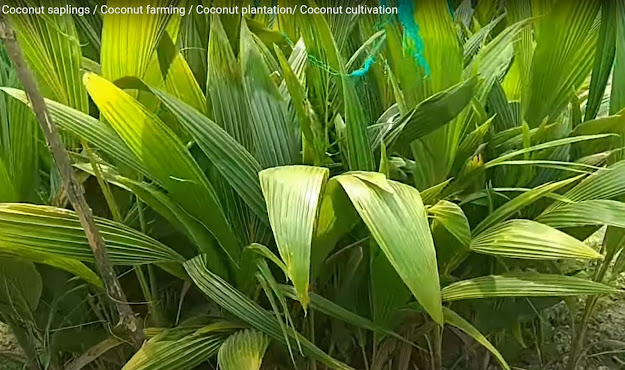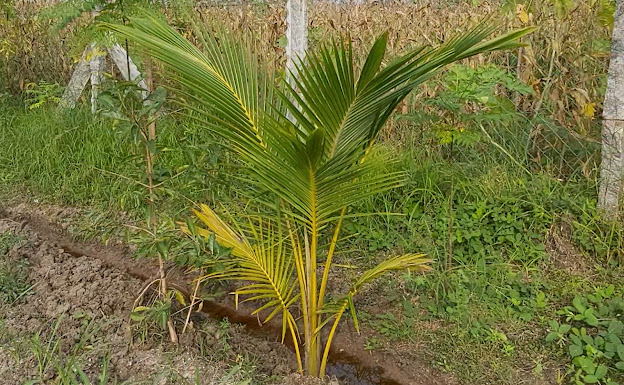How to irrigate Coconut palm - Organic Coconut farming

How to irrigate Coconut palm: Coconut palm requires large quantities of water for its normal growth and timely production. In normal conditions and in absence of rains every palm needs about 16-18 litre water daily. Regular irrigation helps to increase the fruit set, improve size and copra content. However, stagnation of water and ill drained conditions should be strictly avoided. Coconut palm responds to summer irrigation. Production of female flowers and setting % increases considerably due to irrigation. Since spadix initiation to ripening of nuts takes nearly 42 months, the full benefit of irrigation can be felt only after 3 years. Burying the Coconut husk or coir dust is one of the most effective ways of conserving soil moisture . These husks coir dusts can act as sponge and absorb and retain moisture about 6-10 times respectively to their own weight and slowly relative to the coconut trees during dry periods. As the husk or dust breaks down slowly, their effect will last ...



